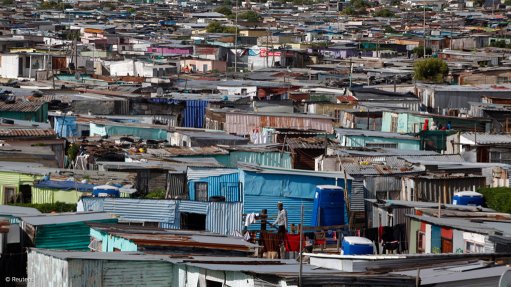
Photo by: Reuters
In celebrating World Health Day on Tuesday, Amnesty International South Africa has cautioned government to ensure that in curbing the spread of the coronavirus (Covid-19) forced evictions must include human rights safeguards.
Minister of Human Settlements, Water and Sanitation Lindiwe Sisulu announced on Monday that five areas – Dunoon, in the Western Cape; Duncan Village, in the Eastern Cape; Kennedy Road, in Durban; Stjwetla, in Alexandra and Mooiplaas, in Tshwane – have been identified as high-density informal settlements from which people will be relocated to stop the spread of the Covid-19.
The Department explained that part of the de-densifying strategy was to move those living in overcrowded informal settlements and to provide them with water and sanitation.
“Any measures taken by the government in response to Covid-19 , including de-densification must be grounded in human rights. De-densification must not lead to forced evictions and must include human rights safeguards including genuine consultation with affected people,” said Amnesty International South Africa director Shenilla Mohamed.
Health Minister Zweli Mkhize announced that the number of positive Covid-19 cases has gone up to 1 686, with the death toll now at 12.
Mohamed added that the government ought to ensure those living in informal settlements as well as those who were relocated as part of the de-densification process were not cut off from their sources of livelihood.
Government must also ensure that residents had immediate access to adequate housing, safe and reliable water and sanitation facilities, access to health care and food, in line with national and international human rights laws and standards.
She called on government to explore all alternatives to de-densification of informal settlements, including equipping them with protective measures, such as facilities in the vicinity where people can self-isolate if necessary, saying relocation can be extremely disruptive at a time when social networks and community support were key.
Government must prioritise human rights and leave no-one behind, said Mohamed.